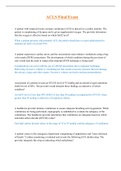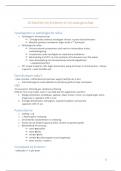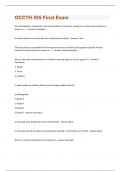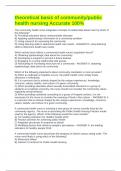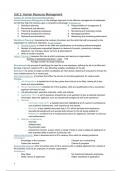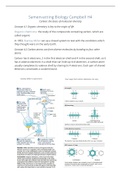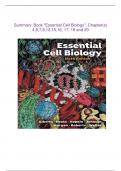A patient with suspected acute coronary syndromes (ACS) is placed on a cardiac monitor. The
patient is complaining of dyspnea and is given supplemental oxygen. The provider determines
that the oxygen is effective based on which SaO2 level?
When a patient presents with potential ACS, the patient should have oxygen administered to
maintain an SaO2 of at least 94%.
A patient experiences cardiac arrest, and the resuscitation team initiates ventilations using a bag-
valve-mask (BVM) resuscitator. The development of which condition during the provision of
care would lead the team to suspect that improper BVM technique is being used?
Complications can occur with the use of a BVM resuscitator due to improper technique.
Delivering excessive volume or ventilating too fast creates excessive pressure that can damage
the airways, lungs and other organs. Excessive volume can lead to tension pneumothorax.
Assessment of a patient reveals an ETCO2 level of 55 mmHg and an arterial oxygen saturation
(SaO2) level of 88%. The provider would interpret these findings as indicative of which
condition?
An SaO2 level of less than 90% (PaO2 of less than 50 mmHg) accompanied by ETCO2 values
greater than 50 mmHg is indicative of respiratory failure.
A healthcare provider initiates ventilations to ensure adequate breathing and oxygenation. While
ventilations are being performed, capnography is established to evaluate the adequacy of the
ventilations. The healthcare provider determines that ventilations are adequate based on which
end-tidal carbon dioxide (ETCO2) value?
End-tidal carbon dioxide values in the range of 35 to 45 mmHg confirm adequacy of ventilation.
A patient comes to the emergency department complaining of palpitations and "some shortness
of breath." Cardiac monitoring is initiated and reveals the following ECG rhythm strip. The
provider interprets this strip as indicating which arrhythmia?
, In atrial flutter, atrial contraction occurs at such a rapid rate that discrete P waves separated by a
flat baseline cannot be seen on the strip. Instead, the baseline continually rises and falls,
producing the "flutter" waves. In leads II and III, the flutter waves may be quite prominent,
creating a "sawtooth" pattern. Because of the volume of atrial impulses, the AV node allows only
some of the impulses to pass through to the ventricles. In atrial flutter, a 2:1 ratio is the most
common (i.e., for every two flutter waves, only one impulse passes through the AV node to
generate a QRS complex). Ratios of 3:1 and 4:1 are also frequently seen.
A person suddenly collapses while sitting in the sunroom of a healthcare facility. A healthcare
provider observes the event and hurries over to assess the situation. The healthcare provider
performs which assessment first?
A systematic approach to assessment is necessary. The healthcare provider should first perform a
rapid assessment. A rapid assessment is a quick visual survey to ensure safety, to form an initial
impression about the patient's condition, and to check for responsiveness, breathing and a pulse
if the patient appears to be unresponsive. This would be followed by a primary assessment and
then a secondary assessment.
A 35-year-old female patient's ECG is consistent with STEMI. The ECG reveals a new ST-
segment elevation at the J point in leads V2 and V3 of at least which size?
New ST-segment elevation at the J point in leads V2 and V3 of at least 0.15 mV (1.5 mm) in
women 40 years or younger is considered diagnostic of STEMI.
An ECG strip of a patient in the emergency department reveals the following rhythm. Which
feature would the healthcare provider interpret as indicating atrial fibrillation?
The two key features of atrial fibrillation on ECG are the absence of discrete P waves and the
presence of irregularly irregular QRS complexes.
A patient presents to the emergency department with mild to moderate recurrent chest pain,
without any nausea or vomiting. A 12-lead ECG is obtained and shows ST-segment depression
with transient T-wave elevation indicative of NSTE-ACS. Cardiac enzyme levels are obtained
and are not elevated. These findings suggest which condition?
A patient who presents with ECG findings consistent with NSTE-ACS and does not have
elevated cardiac serum markers is to be considered as having unstable angina.

